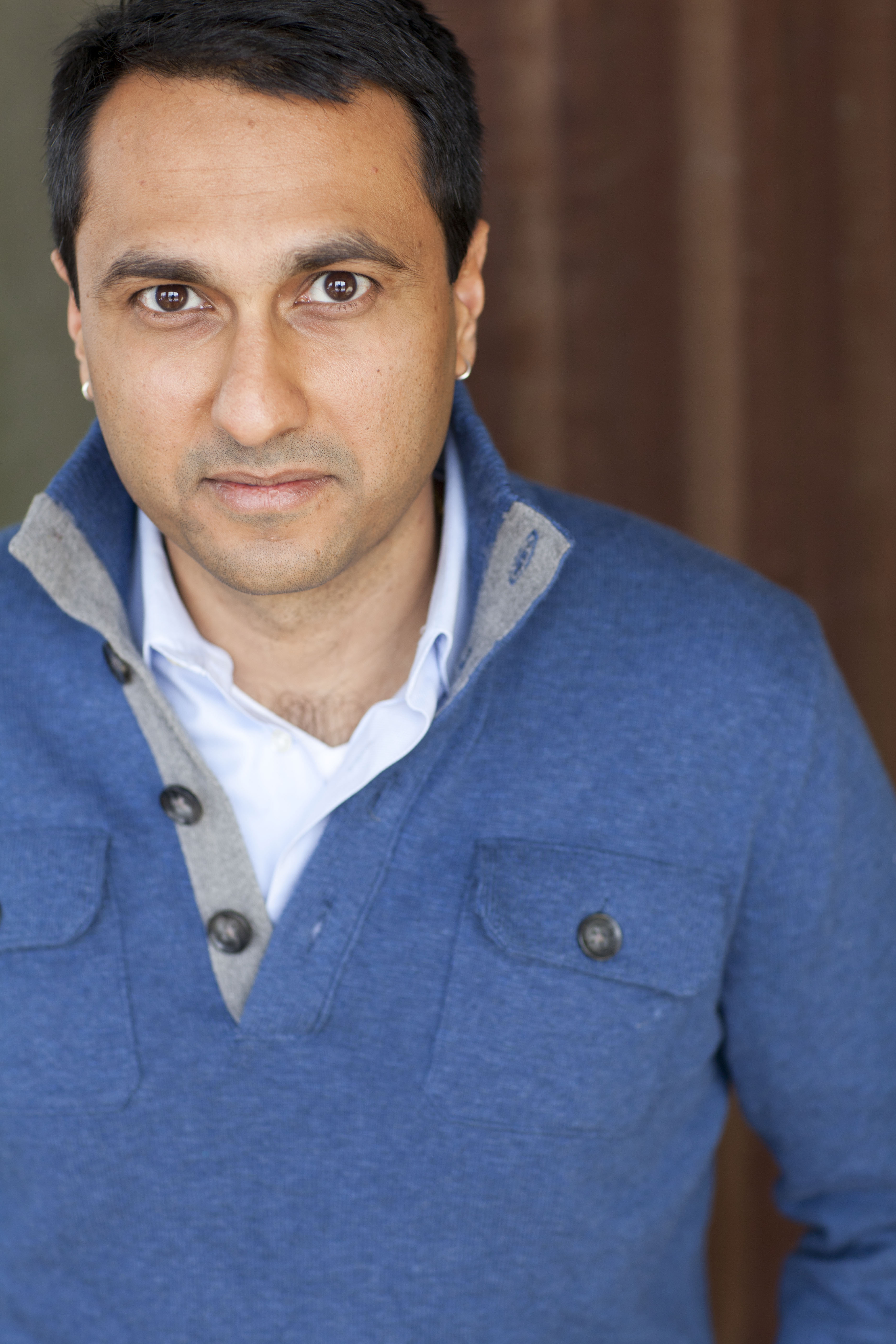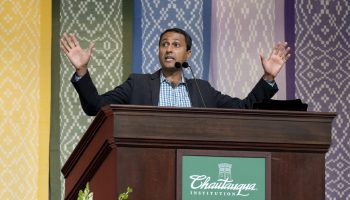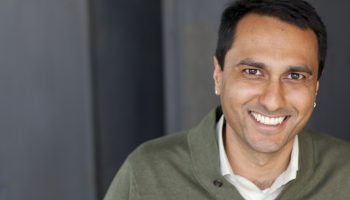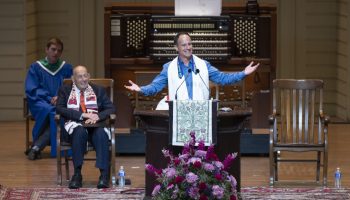Having spoken in the Hall of Philosophy in previous years, Eboo Patel is ready to bring his ideas to the morning lecture platform — a move symbolic of the central role that he hopes interfaith conversations take in the nation.
“The fact that America is becoming a more religiously diverse nation is not disputed,” said Patel, founder and president of Chicago-based nonprofit Interfaith Youth Core. “The question is, is that religious diversity going to lead to more conflict and prejudice, or is it going to lead to strengthened social cohesion or increased social capital?”
The way forward, Patel said, consists of cultivating interfaith leadership and crafting a welcoming national narrative — central themes that he has detailed in two separate books and is weaving together at 10:45 a.m. Friday in the Amphitheater. His talk, which is rooted in a “theology of interfaith cooperation,” concludes the morning portion of Week Three’s theme, “A Crisis of Faith?”
An American Muslim and a member of President Barack Obama’s inaugural Advisory Council on Faith-Based Neighborhood Partnership, Patel said he is undoubtedly saddened by the current state of politics. Yet, he is also heartened that many are openly embracing people from diverse backgrounds and acknowledging their contributions to society.
By the “long view” which Patel and his organization takes, the greatest danger to advocating for religious pluralism is not hostility; it’s complacency.

“When our values are under attack, that’s when we realize how important those things are,” he said. “Sometimes it takes a threat to the things that we cherish for us to fight for them the way we need to.”
That’s where interfaith leadership comes in. An interfaith leader, according to Patel, is “someone with the vision, knowledge base and skill set to build bridges of understanding and cooperation in a religiously diverse setting.”
These settings are more commonplace than one might think.
“There is this kind of typical image of an interfaith leader as someone with a collar, or someone with a Ph.D. in theology,” he said. “But I’m looking at interfaith leaders as somebody who coaches a religiously diverse Little League team, somebody who is a co-chair of a religiously diverse (PTA), somebody who is the director of a religiously diverse YMCA.”
Patel recalls an encounter with a recent college graduate, who came up to him after a public talk. She was working in a programming position at a senior home, and a significant number of the events she had to organize was faith-based: worship services, Bible studies, sing-alongs, even meals.
“She didn’t know that there was a different Bible for Catholics and Protestants,” Patel said. “She didn’t understand differences in worship between, say, Baptists and Presbyterians. But that’s what she was dealing with professionally all the time, and she said, ‘I wish that my college had prepared me better for my profession.’ ”
The best place to prepare Americans for interfaith leadership is in higher education — and that’s exactly the environment in which Interfaith Youth Core operates. Since 2002, the organization has been helping college campuses develop interfaith strategic plans and advising faculty in developing interfaith studies. They have also worked with historically religious higher education networks to relate their mission and identity with their religiously diverse student bodies.
In addition to equipping individuals and institutions, Patel thinks the country also needs an inspiring narrative about whom it welcomes and what it accepts as an American religion.
“It can’t be entirely critical; it has to lift as many people as possible up, respect where they come from, respect what their concerns are, and say, ‘You can thrive also,’ ” he said. “We are heading toward a world where you will thrive also.”
Recognizing that a “large swath of America” finds diversity a threatening idea, Patel strives to engage with them rather than “steamrolling” them and calling them bigots.
“Anybody who is interested in social change is in the persuasion business,” he said. “If there is a large group of people who aren’t being persuaded … what can somebody in my position do to be more persuasive?”
Five years ago, Patel unveiled his book, Sacred Ground: Pluralism, Prejudice and the Promise of America, at Chautauqua. For him, the Institution has been on the leading edge of positive change in the country; interfaith cooperation should be no exception.
“Chautauqua played a very important in America coming to understand itself as a Judeo-Christian country,” Patel said. “What kind of role can Chautauqua play in helping the United States understand itself as now a profoundly multifaith country?”




